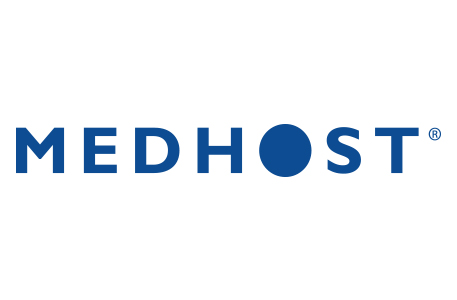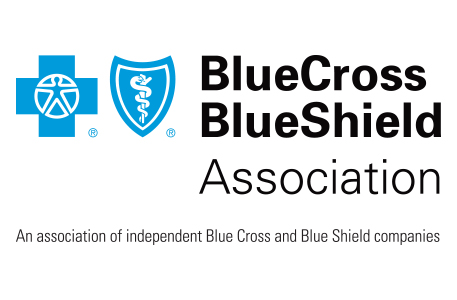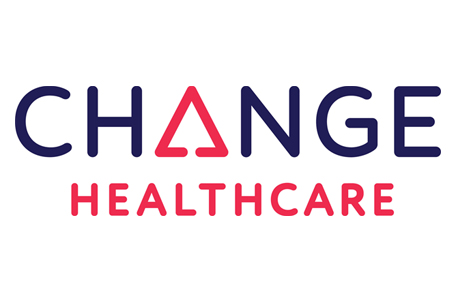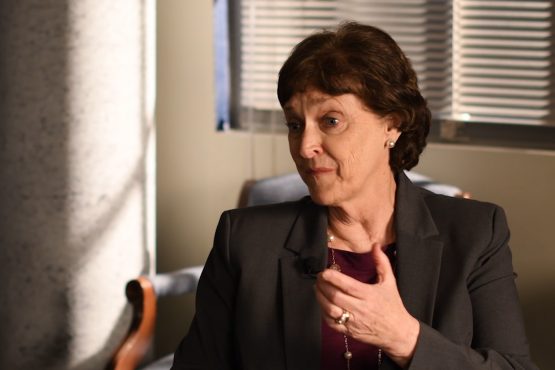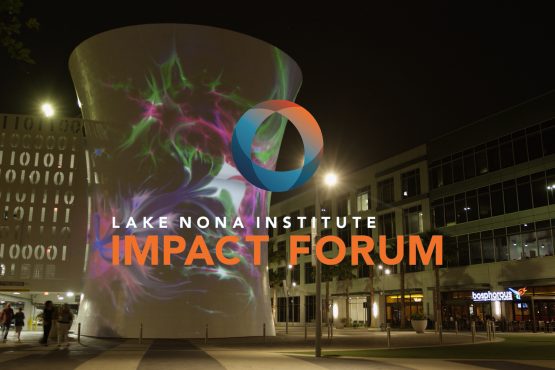Dr. Sarah Homitsky is the medical director for the Alexis Joy D’Achille Center for Perinatal Mental Health at the West Penn Hospital in Pittsburgh. Dr. Homitsky specializes in Pregnancy-Related Depression, and the Center is one of the few places in the country to offer intensive mother-baby outpatient treatment for postpartum depression.
Additional resources from our partner, the BlueCross BlueShield Association:
- An estimated 1 in 7 new mothers experience clinically significant depression or anxiety during or after pregnancy. Yet, the majority do not receive a diagnosis or adequate treatment. Read what BlueCross BlueShield plans are doing to help address this problem.
- Nearly 4 million women give birth in the U.S. annually, the vast majority without any problems. But for roughly 700 women a year, childbirth is punctuated by tragedy—while giving life, a mother dies. Here’s how BlueCross BlueShield plans are taking steps to make a difference.
- Pregnancy for African-American women can be more dangerous and even more deadly – but it doesn’t have to be. Learn more here.

Dr. Sarah Homit…: Our staff is trained to teach mothers to really help enhance that bond. Because we know that mothers who are depressed postpartum are I say unintentionally disengaged with their little ones. They’re less likely to talk and sing with them. So that carries over into longterm consequences.
Senator Bill Fr…: You’re listening to A Second Opinion, your trusted source engaging at the intersection of policy, medicine, and innovation. And rethinking American health. This episode is brought to you by the Blue Cross Blue Shield Association. Blue Shield companies are supporting healthcare partners on the frontline of this unprecedented fight. Ensuring patients don’t have to worry about cost. Caring when it counts the most for the health of America.
Now let’s turn to the episode. Dr. Sarah Homitsky is the medical director for the Alexis Joy D’Achille Center for Perinatal Mental Health at the West Penn Hospital in Pittsburgh. Dr. Homitsky specializes in pregnancy related depression. And the center is one of the few places in the country to offer intensive mother-baby outpatient treatment for postpartum depression. I’m your host, Senator Bill Frist. Welcome to A Second Opinion.
Sarah, let’s start right in with postpartum mood, with anxiety disorders. Much of this is a focus of your life and the life of your patients. But let’s start with that. Give us a general introduction of what you see, why it’s important, and how we’re able to help people today.
Dr. Sarah Homit…: So I think people would be surprised to know that it’s actually perinatal mood and anxiety disorders are the number one complication of pregnancy. Right now, the estimates worldwide, nationwide are pretty consistent. 15% of mothers develop postpartum depression. That means that one out of every seven mothers is impacted. And annually in the United States, the estimates from the CDC show that probably 500,000 babies at least are annually born to a mom who is suffering from depression or anxiety. So it’s a group of diseases that are impacting a large proportion of our community. And stigma I think has really prevented, I think to some degree engagement in treatment. For some reason, we think of anxiety and mood disorders as more controllable than say diabetes.
When I consider the impact, we think about postpartum mood and anxiety disorders as just impacting mom. But in fact, it has a very long lasting on families and offspring. And I think that’s important to think about when you look at the economic burden and family burden longterm.
Tell me a little bit more about the official definition. Is a postpartum mood and anxiety disorder, something that comes up just after delivery, or is it preexisting? It’s probably a combination of both. Is it something that there’s a substrate out there that makes it more likely or predictive? Share some of the understanding of them.
Senator Bill Fr…: Sure. So actually 60% of the time, postpartum depression starts during pregnancy. So the majority of women start to develop symptoms of depression or anxiety during their second or third trimester. And then it carries over until their post delivery or postpartum period.
Dr. Sarah Homit…: When you think about a diagnosis, what does a diagnosis of postpartum depression take. And we see women who of course there’s increased tearfulness. We see a lot of isolation, a loss of interest in things. So they’re not as social with their family and friends. They’ve sort of lost interest in the things that once they really enjoyed.
They’re not eating as much as they were before their appetites lost. They feel very guilty. Guilt is one of the primary symptoms we see among women. Feeling that what they’re doing is not good enough. Would things be better if they weren’t around is more severe depression.
Anxiety for us looks most of the time like health anxiety, a fear of what if something were to happen to them or their baby? So a lot of intrusive worry about the babies getting sick, or SIDS, or sudden infant deaths. So the women will check frequently overnight to make sure the baby’s still sleeping and they’re unable to sleep because they’re too worried about the baby. So we see a lot of a variety of different symptoms, but I think anxiety is actually far more prevalent than the depression itself is.
Senator Bill Fr…: And then how do people get to you? I’ve seen all the statistics of as many as one in seven women suffer from some sort of postpartum depression. But how do they get to you? Because I’m sure, I don’t have where the data comes from first, but I would assume that there’s probably a lot more of the condition out there than ultimately accesses the system or reaches somebody such as yourself. What are the normal channels?
Dr. Sarah Homit…: You’re spot on. The estimates suggest that we actually are probably only identifying 50% of women who meet criteria for depression during pregnancy or postpartum. And I think the even more frightening statistic that’s out there is less than 10% of women who are diagnosed are getting adequate treatment. And that is due to a variety of reasons. But I think lack of integrated care models is certainly one of them.
For us, that was a huge part of us building our integrated care model. So we started with implementation of universal screening in obstetric offices. So twice during pregnancy and once postpartum, our patients are screened using what is called the EPDs or the Edinburgh Postpartum Depression Scale.
And what happens is they go in for their prenatal visit, they get a tablet like an iPad, and they fill out the screener. And then their results get automatically uploaded into their electronic medical record. And if they screen above a certain score on the EPDS, it sends a warning to the obstetrician that pops up in their face on the record when they go to see the patient and says, “Hey, this woman’s at risk of developing postpartum depression or anxiety. What are you going to do about it?” So they have options, and one of them is referral to us at Women’s Behavioral Health.
So we have really, really streamlined the referral process, which I think has helped us tremendously in terms of improving access to care and reaching those in the community who are suffering.
When you look actually at our data in terms of the number of cases that are referred to us, 80% of the women who are referred to us come from our obstetricians, from our obstetric offices. And it helps because the patients have a tremendous amount of respect for their obstetricians or their primary care providers. So when an obstetrician says to the patient, “Hey, I trust these providers. This mental health team knows what they’re doing.” The patient is more likely to trust us and engage in services with us down the road.
Senator Bill Fr…: Tell me a little bit more about your center. I know it’s a one of a kind center. Our listeners and viewers across the country would be interested in a little bit more about the center itself and what is its history.
Dr. Sarah Homit…: Yeah, so we opened in December of 2018, so it’s newer. And it’s quite large. It’s 7,300 square foot, and it’s designed to really mimic what it’s like in a home. So you see recliners, you see rockers and gliders for moms who are pregnant. Making the space more comfortable for pregnant and postpartum women. There’s a ton of natural light, a huge group space that overlooks one of the city parks. So the view … it’s a center that really fosters wellness if that makes sense. And we tried to use as much glass and natural sunlight as we could.
We also have everything that a new mom needs. That was our goal. So you see breastfeeding nooks, you see breast pumps, you see breast storage. We have a full kitchen that we use. We partner with community programmings Adagio Health, and the Pittsburgh Food Bank to bring in dieticians to talk about healthy meals for moms who are breastfeeding. And women love that. And they join the course all the time.
It is definitely a blessing. We’ve been very pleased to have such support from our healthcare network and been able to partner. I also will say it’s a safe space for women who are also struggling with miscarriage, and infertility, and fetal loss. And we’ve really were thoughtful in the design of the space to allow a separate space for women who are really struggling with those issues as well. So it’s beautiful. It’s stunning. It’s very, very calming and soothing.
Senator Bill Fr…: You know, my dad was a physician. And as a little boy a long time ago, I used to go on nightly a hospital rounds with him. And I just remember again and again, again this was a long time ago before the science was there. That him commenting on the importance of the environment. The healing environment, and how simple things like where windows are located or furniture is placed. The lighting in a room. The access to viewing plants and nature. How important that was to the healing process. What you described so well is the current adaptation of that. And we all know it. And we know that integration of our perception of the world around us and the healing there.
The D’Achille Center for Perinatal Mental Health at West Penn Hospital. Tell me a little bit about the center itself Alexis Joy D’Achille. Who was Alexis?
Dr. Sarah Homit…: She unfortunately was a woman who struggled with perinatal bipolar disorder. And bipolar disorder, pregnancy is such a vulnerable time for women who have bipolar disorder. And if you don’t know you have it, and often you don’t by that age, it can be devastating.
And unfortunately, she had a strong family history of bipolar and got significantly depressed postpartum. And psychosis was involved and took her own life at four weeks postpartum. And her husband has since really dedicated himself to increasing awareness of bipolar disorder, postpartum depression, and his longterm goal has always been to make Pittsburgh the safest city for new moms. So he was a huge part of establishing our women’s behavioral health service line and the center itself.
Senator Bill Fr…: You include the baby in treatment. What does that mean? Tell me a little bit that approach.
Dr. Sarah Homit…: So we think that it’s incredibly important to target postpartum mothers with mom baby treatment. And what that means is that the mom brings the baby to the center with her. And we engage the baby in part of her treatment plan.
So as an example, our large group space. We have a huge yoga studio where we do mom, baby yoga. We engage the Carnegie Library to come in and they bring books, and we teach early with literacy. We teach mothers nursery rhymes that they can do with their infants. Baby wearing, infant massage. Sign language, baby sign language. All of these are our staff is trained to teach mothers to really help enhance that bond because we know that mothers who are depressed postpartum are, I say unintentionally disengaged with their little ones. They’re less likely to talk and sing with them. So that carries over into longterm consequences. So you see higher rates of developmental delay, lower cognitive function, school problems in offspring of mothers who struggle with depression. And you also see higher rates of ADHD and anxiety disorders in children born to moms who were depressed during pregnancy. And I think that’s a reflection of the lack of engagement.
Your comprehensive approach is so impressive. How long did it take for it to catch on? When you first opened your doors, where people just flowing to come in or did it go by word of mouth? Tell me a little bit about the growth over time.
We started with two mental health clinicians, and we averaged about five appointments a week. And we now have over 15 clinicians and we’re well above 175 appointments a week. So I think that’s a testament really to our improved reach, but also the community need the unmet community need prior to 2018.
Again, we’ve been very blessed. But we’ve been diligent. We’ve hit every obstetric office within the Allegheny Health Network. We have also taken our staff to pediatric offices to introduce ourselves, to educate providers on early signs and symptoms of postpartum depression and anxiety, and offer our services.
We’re also very quick. When a woman is referred to us, we call her within 24 hours and she is scheduled with one of our specialists within two weeks. And in the world of mental health, that is unprecedented. We are so fast, and we treat every woman as if it’s acute. So I think we have sort of made a name for ourselves in that way. And I’m proud of the evidence based medicine we practice and the quality of the staff on board, because I think that has also helped.
I will also mention that we had a huge campaign called My Wish For Moms, which was a campaign with Chrissy Teigen to normalize getting help for perinatal mood and anxiety disorders. And thousands of women posted their story online and sought treatment. And that has had a huge, after we ran that campaign, we went from 50 referrals a week to 100. So that tells you how successful that was.
Senator Bill Fr…: And why is that? Just in my own experience as a physician, when people talk about anxiety disorders or depression, or even mental health generally, there is a stigma. But more of an embarrassment as if it’s something to be embarrassed about. How does the media and having well known people voice the realities help in reducing that stigma and lowering those barriers to bring people in?
Dr. Sarah Homit…: I think normalization. It doesn’t matter how wealthy you are. It doesn’t matter how gifted or talented you are. Postpartum depression and anxiety doesn’t care. It impacts everybody. So I think Teigen’s participation helped in that way.
I think the other thing is in the world of psychiatry, we haven’t had the knowledge, the understanding of women’s health issues to the degree that we have today. So what I mean by this is how changes in hormones, how fluctuations in hormones impact brain chemistry. And we’re starting to learn more about that. And research is starting to focus on that. And that is incredibly valuable information when you’re sitting with women, because it says, “Hey, this is a genetic biologic illness to some degree. You could’ve ran six miles a day and ate healthy food all you wanted, and you still could have developed depression or anxiety.” So it takes some of the ownership off them and really recognizes it as a legitimate health concern and disease, with pathophysiology that involves real neurotransmitters in your brain.
Senator Bill Fr…: And now a quick word from our sponsors that make this podcast possible.
Speaker 4: Right now, Blue Cross and Blue Shield companies are supporting the heroic efforts of our healthcare partners on the frontline of this unprecedented fight. Helping doctors and hospitals get the resources they need, ensuring patients don’t have to worry about costs, and making access to prescription drugs easier. Caring when it counts the most, for the health of America.
Senator Bill Fr…: And now back to the episode.
And we are making progress there. Again, going from my field of cardiac surgery and cardiac disease. The study is really just inherent in the nature of the science at the time. And we didn’t study heart attacks in women. All the imagery was of a man clutching his fist and then holding it in the middle of the chest. So the whole imagery wasn’t there. And when people really looked at it, the inherent, but not intentional, I don’t think it was intentional bias was towards men. And are you encouraged in the progress that’s been made in your own field in terms of the amount of research that’s underway specifically for women, by women, and on women’s issues?
Dr. Sarah Homit…: I am. It’s been nice to see movements in medicine. I think the NIH has really made it a commitment to investing in not only women researchers, but also issues, women’s health issues. And that is I think going to be tremendously important to see that increased investment in research.
I also see people talking more about the importance of including women practitioners on executive boards. Where decisions are being made about allocation of funds in hospital settings. And I think it’s nice to have that diversity among the among hospital leadership. So I’m optimistic. I’d love to see more of course. I’m a true feminist, but I definitely am pleased with the direction in which I see things going
Senator Bill Fr…: On this podcast, we spend a lot of time at that intersection of innovation, and creativity, and starting companies, and looking to the future in new research. With clinicians, and medical care, and healthcare, and with policy. And as we do that, I appreciate you mentioning the importance, whether it’s a new company and participation on boards, and in leadership of women increased diversity across the board. It has a huge impact and clearly will further both the policy, the health, as well as the innovation if we do better in that.
And on the Allegheny network, just tell me a little bit about that. We have people listening all over the country and all over the world. But in terms of your attachment area and what the Allegheny network, how much you draw from it, how big is that regionally?
Dr. Sarah Homit…: So it includes all of Western Pennsylvania up through Erie, northern part of the state of Pennsylvania, and out to Central Pennsylvania. That’s one of the other benefits of tele psych is that you can really reach patients from rural areas in Central Pennsylvania. And we’ve been blessed to have referrals from Penn State area, and even Philadelphia at times.
We have one of the only intensive outpatient for women who are struggling with postpartum depression. And I’ll explain what that is. It’s a mother-baby program where women can come three days a week for three hours each day, to get group therapy, individual therapy, and mom baby treatment. And there are less than 20 of these programs across the country. So we have a lot of women from out-of-state who will stay with family and friends in the Pittsburgh area just to participate in our group.
So again, a sign that we need to expand our mom-baby services nationwide, but also it’s been fun to see how far of a reach we have had. Not only statewide, but nationwide.
Senator Bill Fr…: You mentioned tele-psychiatry, telehealth, virtual delivery. And let’s spend a little more time on that. But as the opening to that, introduction to that, COVID-19 the pandemic that is underway and that will likely be what this for months and months to come. How has it impacted in your service, how you deliver the methods, the means, the tele-psychiatry that you might be doing? How has it transformed what you’re doing?
Dr. Sarah Homit…: It’s had a tremendous impact. Within days, we closed our entire office to in person visits and had all staff members working from home and just doing all visits online through our confidential health app. And it has worked very well. We’ve had a wonderful team of support. And I think insurance companies have stepped up to the plate in allowing for reimbursement of these visits when they weren’t previously. Especially community care or medical assistance is now allowing telephone calls and tele psych visits.
And just to say briefly what we’ve noticed. Within the last month, actually changing and shifting to telehealth visits for our patients on medical assistance. We’ve seen a 10% drop decrease in our no show cancellation rates among our patients with medical assistance. And I think that really proves that telehealth has value in addressing some of the barriers to care, like transportation. Our patients have to sit outside at a bus stop in the snow and zero degree temperatures with a newborn in order to get to our appointments. So telehealth really makes it so much easier for these women to get care.
I think COVID has had a tremendous impact on our patient population. Obviously, women who are depressed and anxious are vulnerable during pandemics. Women are constantly worried about whether or not they are going to get ill, or fall ill, or their children are going to fall ill. A lot of our women who suffer from obsessive compulsive disorder do a lot of frequent hand washing, washing the bottles. So times like this, we see those symptoms amplify quite a bit.
And it’s hard for everyone to be stuck in the house. I think we’re doing what we can to encourage women to practice social distancing, but get outdoors. Get in nature, be physically active. Maintain a routine, eat your meals, and take time for self care. Which can fall to the wayside for mothers who are trying to work full time from home and also care for their kiddos who are out of school or daycare. So we’ve seen an increase in the severity of anxiety, as well as the frequency of anxiety disorders right now among our population.
Senator Bill Fr…: Tell me. The tele-psychiatry or using video like we’re doing now, what about the anonymity, the intimacy? I know those are two very different things. But the interaction itself, it lacks physical contact. Which at least as a physician was traditionally very important, that presence in the room. That presence of being able to reach out and hold a hand. Tell us about the interaction of the technology. Does it bring you closer? Do people feel safer, less secure, more secure, or maybe not that much of a difference?
Dr. Sarah Homit…: It’s a blessing and a curse. You do lose some intimacy. But if you’re genuine and empathetic, it comes across even via a computer or a phone. I think patients can sense that.
I think that that’s the downside of it. The downside is the lack of intimacy. But the benefit of it is that you can show that you care, and you can schedule more frequent visits almost now that you have this sort of technology.
So for us, for our patients who are struggling, it’s almost like we’re more accessible because of the upgrades in technology and billing right now. So I think what we lose, we gain to some degree.
And you’re right, there is a lack of intimacy. But if I wasn’t going to see the patient at all, and they were going to miss their appointment, we know that women who have low social economic status are at higher risk for depression and anxiety. Their no show cancellation rate is as high as 48%, 50% for us. So a 10% drop in that is substantial for us. So in some ways, we’re making up for what we’re losing with telehealth.
Senator Bill Fr…: Yeah. I think it’s fascinating. The non-behavioral field, huge progress has been made. And I’ve really spent a lot of time on it ever since my days in the Senate, because I’m a great believer. And it really strikes upon the points that you said. That you don’t have to make plans, leave work, leave home, get in a car, drive across town, being in a waiting room. Other people in the waiting room, you just may not want to see exposed to infectious disease there, sit down, talk to people. No matter how nice we’d like to make our offices and environments, it’s not home. And that has really proven, at least in the physical illnesses, the nonmedical illnesses as well, I think you’re going to be seeing the same thing. And I think it’s really accelerated our acceptance of technology. And there’re going to be some hidden benefits in there, but they convenient which you pointed out. And being able to show up for appointments and possibly do more appointments. And knowing that the barrier between somebody is really just one click of a button or a click of the mouse has its huge positive benefits as well. So I’m really delighted that you’re seeing some of that in your own practice.
The policy end of things is also important. Sort of like to come close to ending on that. Is there anything at the national level? Everything we’ve talked about is sort of at the person patient level, baby level, what goes on in the office, the clinic, and the home. If you step back at 30,000 feet, are your policies that are important either at the national level or the state level to facilitate better health, better wellbeing for moms, and babies, and future moms?
Dr. Sarah Homit…: Absolutely. Some of the ones that come off the top of my head, demanding universal screening is an easy step. It’s not required in all states to screen for perinatal mood and anxiety disorders. And it really should, it being the number one complication of pregnancy.
Another is expanding insurance coverage further than a month postpartum. I think we sometimes don’t even, women don’t even develop symptoms of depression or anxiety until four months postpartum. And if they don’t have insurance at that time because it was lost, their medical assistant was lost postpartum after a month. They can’t seek the treatment that they need. So I think expanding what is our definition of postpartum? And should we extend our medical assistance 12 months postpartum instead of one? And would we see longterm benefit and cost-effectiveness there?
Another huge one is maternity leave. We ask a lot of our new mothers as they transition to parenthood and to get back into the workforce in a month. Our patients are concerned. They need the money. They can’t stay on FMLA and have unpaid leave for three months whenever they’re the primary income makers for their family. So I think really, we should, the rest of the world has extended their maternity leave. And I think we ought to consider the same.
One other small thing, but I think could have a tremendous impact is our psychiatric units. We only have one, maybe two mom baby inpatient psychiatric units nationwide. And they have been very successful worldwide for a long time now. So I think we’re a little behind the ball there. And right now, if a woman is depressed and suicidal, she has to go into a general psychiatric unit. So she leaves her baby at home. She’s in a locked facility. She can no longer breastfeed. And that’s a huge disservice. So these inpatient units where mom and baby are admitted together and have treatment together, I think is another huge thing that we should be investing in. And I don’t think we need a lot of them, but we certainly need more than two across the United States.
Senator Bill Fr…: So as we bring things to a close, say I’m going to be a first time mom. And I have been reasonably healthy, I get down to the dumps and having anxiety. Depressed just like everybody else at times or the normal course of things. What should I know? And say I’ve just gotten pregnant. And I began to think really for the first time about the realities of it. What do you tell or what should I know? What do you advise and counsel to best prepare them for what may occur? And statistically, there’s a pretty good chance that will occur. What do you tell them?
Dr. Sarah Homit…: Don’t be afraid to ask for help. I think division of responsibility is important. We engage partners in our visits with all of our mothers for that reason. What can you do to divide nighttime feeding so that you can get six hours of uninterrupted sleep every once in a while?
I would normalize it. I would say you are not alone. In fact, you are one in seven. And the wonderful thing is that we’ve seen a huge gain in evidence based treatments for perinatal mood and anxiety disorders. So if you are suffering, there are options out there that are helpful. And you can feel better quickly if you reach the right provider, and we’re there for you.
And if you’re uncomfortable with mental health, if mental health scares you. And I understand that. I have a joke that no one really ever wants to come and see me and go on psychiatric medication, and I understand that.
But you don’t have to see me. If you’re more comfortable seeing your obstetrician, or if you’re more comfortable talking to your family and friends and getting peer support, that’s okay. Just reach out to anybody for support.
Senator Bill Fr…: Dr. Homitsky, thank you for spending time with us today. You are an inspiration to me, and I know to all of our viewers. In our show notes on our website, we will include contacts and more information. I think of all the shows that we do, this sort of messaging that is a conversation that everybody can identify with. Whether you’re a mom, an expectant mom, experiences in the past. Or a dad who is sort of wondering what all this is about. This has been very, very helpful to me and to our listeners. And it really does capture why it’s so important to look at all these issues primarily as health and wellbeing issues. But also as we think ahead, what policies can be adapted to make the world a better place for all of us. But thank you so much for being with us today.
Dr. Sarah Homit…: Yeah. Well, thank you so much for reaching out and including me.
Senator Bill Fr…: Thank you.
This episode of The second Opinion was produced by Todd [Schlosser], the Modus Creative group, and Snapshot Interactive. You can subscribe to A Second Opinion on Apple Podcasts, Spotify, or wherever you are listening right now. You can also watch our interviews on YouTube and on our website. And be sure to rate and review A Second Opinion so we can continue to bring you great content. You can get more information about the show, its guests, and sponsors at asecondopinionpodcast.com. That’s asecondopinionpodcast.com.
A second Opinion broadcast from Nashville, Tennessee. The nation’s Silicon Valley of health services, where we engage at the intersection of policy, medicine, and innovation.
